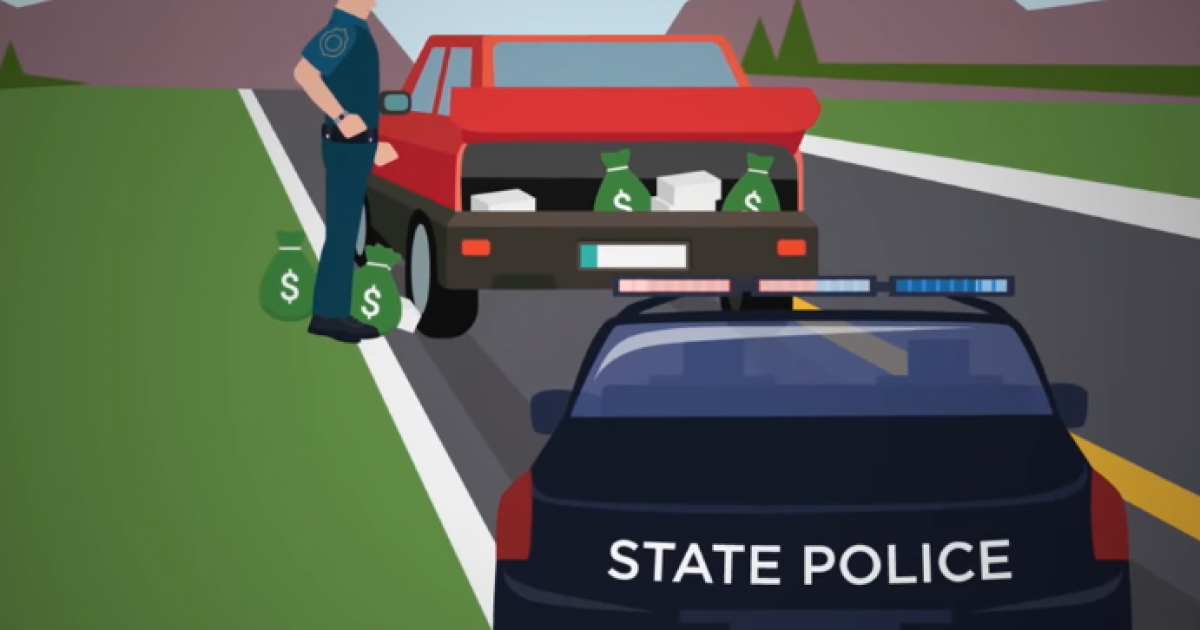
An Ohio city is attempting to get a man to pay it back for the costs of deploying police to respond to a false 911 call.
The city is turning to the state’s Marsy’s Law, which is purportedly used to protect crime victims’ civil liberties.
In April 2018, Michael Knab called police from his home in Centerville, Ohio, telling a police dispatcher that an active shooter was in the area and somebody was shot. There ended up being no shooter. Police searched the home and did not even discover any firearms. According to a court report of the case, witnesses claim that Knab had been smoking meth and was experiencing hallucinations. A friend who was living at the home revealed that Knab had mild schizophrenia.
Knab would later be charged and convicted of filing a false police report and abusing the 911 system. The city of Centerville then claimed that as a “victim” of a crime—referring to Knab’s false 911 call— the city was expected to receive financial restitution per the state’s Marsy’s Law. It wanted Knab to pay the Centerville Police Department $1,375.56 for the costs of responding to the call.
Knab is now appealing his conviction and the demands for restitution. His argument is that he genuinely believed he was in danger when he called the police. The courts upheld this conviction but the Court of Appeals for Ohio’s Second Appellate District in Montgomery County rejected the restitution demands. The court determined that while a city can be a victim of crimes like embezzlement and vandalism, government agencies cannot be treated as “victims” of crimes that they’re responding to in their official capacities. Government agencies cannot demand restitution simply for the cost of responding to 9/11 calls based on a law’s wording.
Centerville petitioned the Ohio Supreme Court to take up the case and reconsider the lower court’s ruling. The court stated that it will look at the question of whether a municipality can be categorized as a “victim” per Marsy’s Law.
This case deals with one of the main criticisms of Marsy’s Laws—their vagueness about what makes an individual in a criminal case a victim, which then leaves the door open for strange claims for financial restitution. The Marsy’s Law in Ohio broadens the definition of victim to include “a person against whom the criminal offense or delinquent act is committed or who is directly and proximately harmed by the commission of the offense or act.”
Scott Shackford of Reason highlighted some problems of the second part of this definition:
“Who is to decide who is “directly and proximately harmed” by a crime? Municipalities insist that pretty much every crime from drug use to homelessness causes the municipality economic harm. What would stop Centerville from demanding restitution from defendants for every crime that requires police intervention? If this restitution demand is upheld, doesn’t this both discourage people from calling 911 and potentially encourage police to arrest people who do if they decide the calls weren’t serious enough?”
Such concerns have motivated the American Civil Liberties Union in Ohio to submit an amicus brief supporting Knab’s claim. The editorial board of The Columbus Dispatch recently voiced its opposition to Centerville’s demand for restitution. It offers an ominous warning about “allowing cities to collect money as ‘crime victims’” which would then “create an unhealthy incentive for local governments to file criminal charges and would put them in competition with true victims for restitution dollars.”



